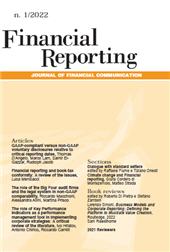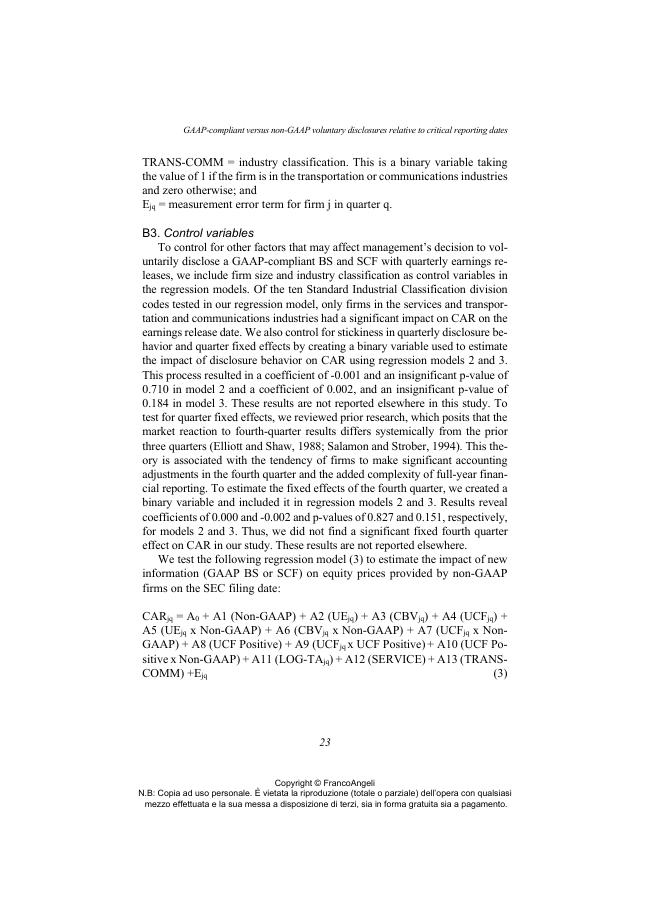GAAP-compliant versus non-GAAP voluntary disclosures relative to critical reporting dates
5-40 p.
This paper investigates the impact of generally accepted accounting principles (GAAP) and nonGAAP voluntary disclosures on equity returns for important financial reporting dates. Design/methodology Using handcoded archival data, we developed 2,329 matched pairs consisting of nonGAAP (control) and GAAP (treatment) quarterly observations and compared the equity returns for each group around the earnings release and SEC filing dates. Findings Our findings suggest that the valuation relevance of GAAP disclosing firms significantly exceeds that of nonGAAP firms in the case of earnings and cash flow surprises. These results support the notion that investors perceive GAAPcompliant disclosures as necessary, complementary information about a firm's performance and equity value. We also reveal that the market revaluation of equity on the earnings release date significantly exceeded that on the SEC filing date.
This finding confirms that the more comprehensive disclosure provided by GAAP firms on the earlier date preempted at least some of the information subsequently disclosed on the SEC filing date. Extends the voluntary disclosure literature, in particular the valuation relevance of GAAP versus nonGAAP disclosures. The findings discussed in this paper are of special interest to policymakers and regulators, financial analysts, corporate managers, firm stakeholders, and academics interested in financial reporting as they continue to study voluntary disclosure rules and practices. [Publisher's text].
-
Articles from the same issue (available individually)
-
-
Information
ISSN: 2036-6779
KEYWORDS
- voluntary disclosure, nonGAAP, earnings release, financial reporting



